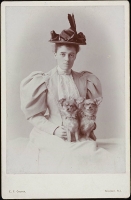阅读yī dí sī · huá dùn Edith Wharton在小说之家的作品!!! | |||||
yī dí sī . huá dùn qǐ chū shì wéi liǎo pái qiǎn shàng liú shè huì jiā tíng shēng huó de kǔ mèn 'ér kāi shǐ xiě zuò de。 tā cóng 1880 nián kāi shǐ fā biǎo xiǎo shuō, 1889 nián dì yī bù duǎn piān xiǎo shuō jí wèn shì, huò dé liǎo yì wài de chéng gōng。 1905 nián cháng piān xiǎo shuō《 kuài lè zhī jiā》 chū bǎn, shǐ tā chéng liǎo běn shì jì qián 'èr shí nián zuì shòu huān yíng de měi guó zuò jiā。 1920 nián chū bǎn de《 chún zhēn nián dài》 wéi tā huò dé liǎo pǔ lì cè jiǎng。 tā yī gòng xiě liǎo shí jiǔ bù zhōng cháng piān xiǎo shuō, chū bǎn guò shí yī běn duǎn piān xiǎo shuō jí, hái yòu dà liàng de fēi xiǎo shuō zuò pǐn。
Edith. Wharton was initially a distraction from the frustration felt by upper-class family life and start writing. She began publishing novels in 1880, 1889, the first collection of short stories appeared, was an unexpected success. 1905 novel "Happy House" publication, so she became the first two decades of this century the most popular American writer. 1920 published "The Age of Innocence" won the Pulitzer Prize for her. She wrote a total of 19 in the novel, published 11 collections of short stories, a large number of non-fiction works.
